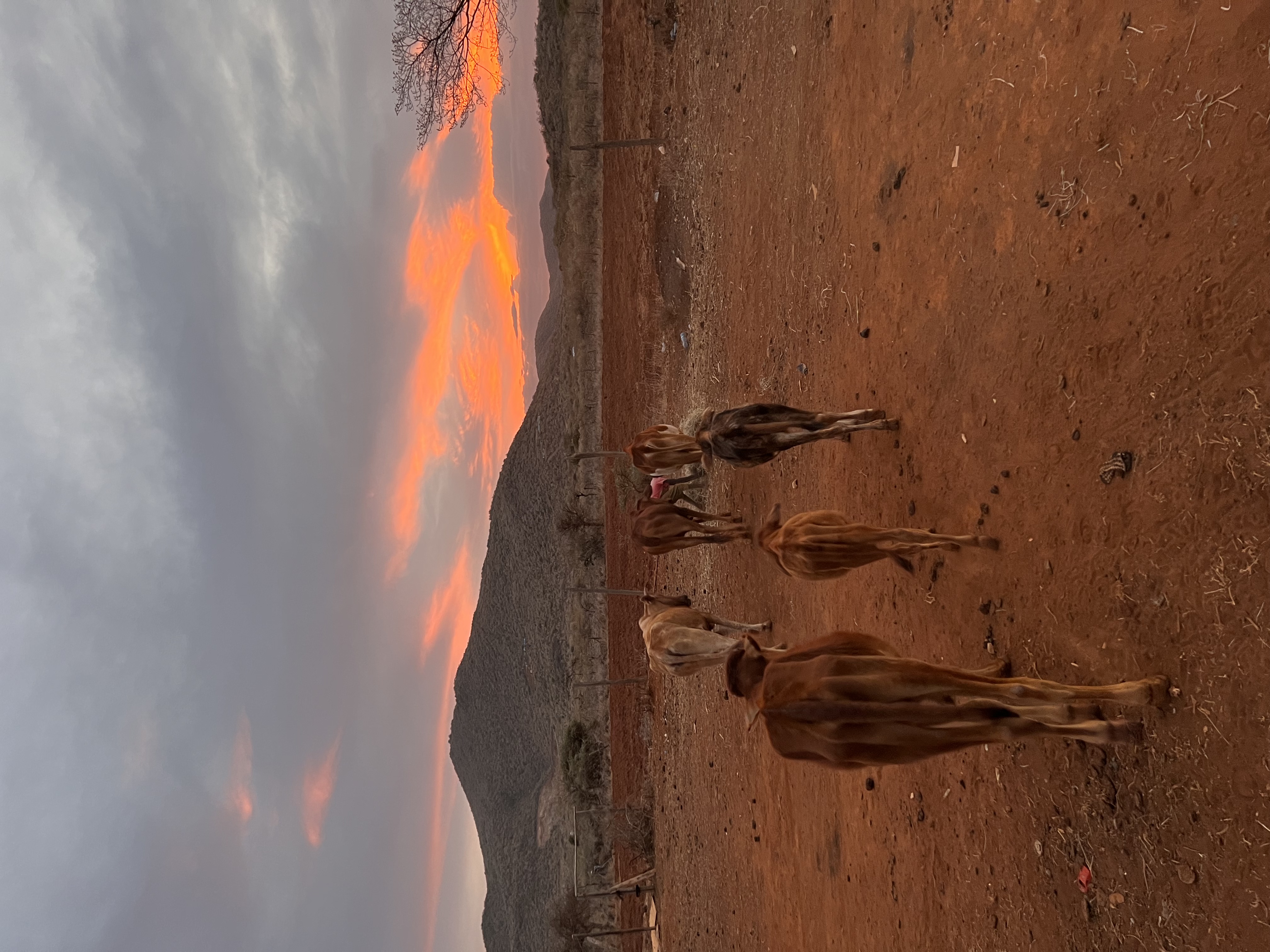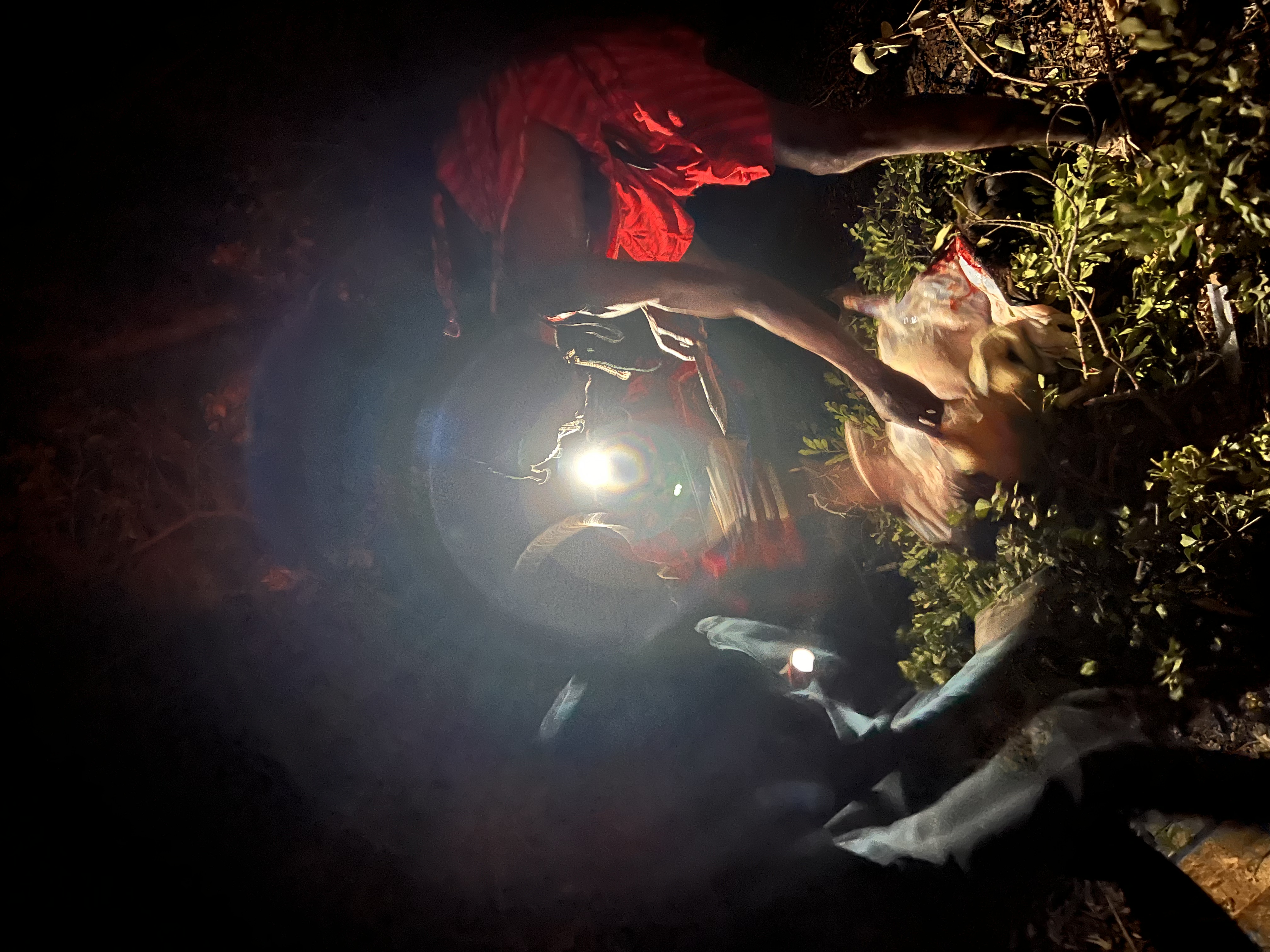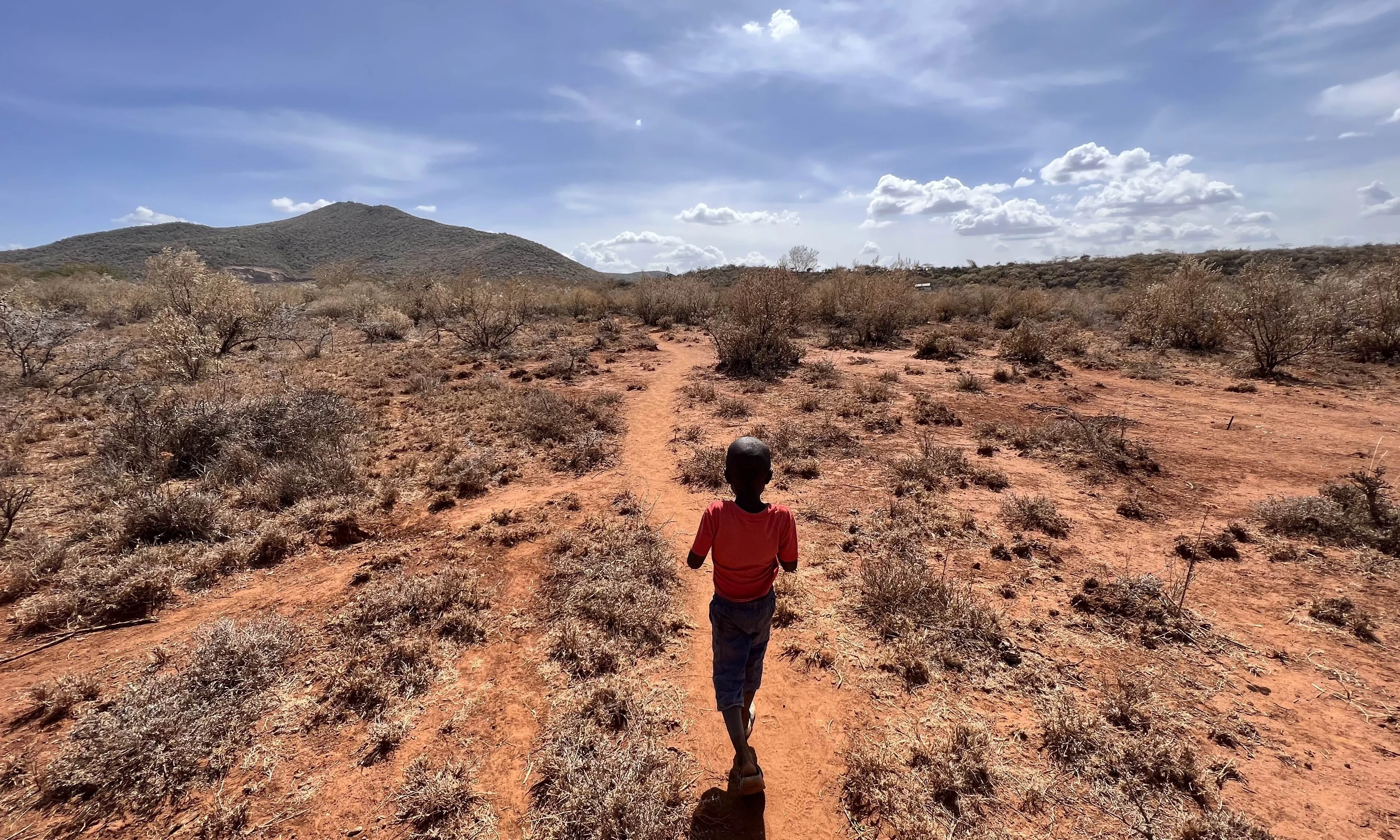My sister like you. She admire you. She ask me, where is the Chinese mzungu? And tell me to leave the home so you guys can talk alone, said Rachel, a built 30-year-old Maasai woman with a kind face and one half of the couple I’ve been staying with for the past week in a rural Kenyan village. I found them through a website called Workaway, an organization that connects travelers and hosts around the world, exchanging part-time labor for food and accommodation within a local context.
We were sitting under the blazing African sun. Rachel was crouched over and hand washing some clothes in a plastic basin, and I wanted to take advantage of the precious interview opportunity, comfortably squat on a large stone nearby. Our feet were tinted an ashy orange from the surrounding dry, red dirt. The family cows grazed nearby, filling the air with a clang! clang! each time they dipped downwards to eat, ringing the bells around their necks.
I scanned Rachel’s face for any ounce of humor or knowingness, unsure whether her statement was the result of a language error, a joke that didn’t quite cross cultural borders, or a combination of both. The day before, she had asked if I wanted to marry a Maasai lady; thinking she was just teasing, I laughed and said that I’d be open to it.
She stared at me now, plain and expectant, and I suddenly realized: oh shit.
Oh, I’m not looking for a girlfriend right now, I said, hoping to swiftly change topics. But, um, you met John fifteen years ago. Why do you think you’re still such good friends?
She stood up and squinted at me through the afternoon’s harsh rays, giggling and pausing before answering. John and Rachel were somewhat of an anomaly in the Maasai community on multiple accounts, different from their village peers. While polygamy is still immensely popular in modern day Kenya, theirs was a committed monogamous relationship.
We are really respect and faith to each other, she replied, her accent thick with hard “d-“ sounds instead of the soft “th-,” punctuated by the occasional rolled r. We are very good friends, really really really. She smiled, and I smiled back.

A few days prior, John had invited me to camp overnight in the wilderness of the Kenyan bush to attend a goat slaughtering ceremony, the first time in my life that “camping” meant laying out a blanket on top of some bushes. He was tall, lanky, and patiently answered my many questions about Maasai life with a lilted sure, sure. We were joined by a group of local Maasai warriors and Jaakko, my fellow Workaway volunteer and twenty-something world wanderer from Finland.
A small fire and a few blankets were enclosed in a ring of thorny, dry bramble, protecting us from the hyenas, leopards, and cheetahs of the night. One of the warriors kept a spear nearby. For security, he said grinning.
The ceremony was swift—graceful, even—as the warriors brandished their knives with such precision and craft that within twenty minutes, the carcass was stripped clean of its skin. Mzungus, one of them called out to me and Jaakko. Here, try this. He scooped up some of the goat’s blood into a cup and offered it in our direction.
Oh, I don’t know, I stammered.
I think I’ll do it, commented Jaakko.
He took the cup into his hands and started drinking, smacking his lips. Not iron-y at all, he added. Tastes like chocolate milk.
Alright, shut up and hand it over, I said. And with that, a new kind of kinship began to form within our unlikely group. The warriors chuckled with glee, excited that their new Western friends were adventurous and curious and could actually—if you will—hang with the boys.
Drapes of meat hung on the surrounding branches like red, fleshy curtains. I stared blankly at the chunks being thrown into a sizzling pot perched above a roasting fire, mouth agape with the realization that this creature was alive only half an hour prior, assuring myself that this was all the more reason to return to my plant-based diet once I arrived back in the USA.
As we waited, John pulled out a bottle of whiskey, poured a nontrivial amount into a plastic cup, and handed it to me. We drank, laughed, and settled into a warm, open haze. I sensed my chance.
So John, I started, Maasai people are polygamous, right?
Yes, he said.
So do you want more wives? Do you want another wife?
No, he responded quickly. His English was considerably better than Rachel’s. I wouldn’t have enough money to give my kids a good education, healthcare, a roof over their heads. John already had three adorable kids with Rachel, but it was not uncommon for his peers to have upwards of ten children across multiple wives.
So is it a financial matter? I asked. He looked confused.
Like if you had more money, would you want another wife?
He paused, his face aglow and flickering. The fire crackled nearby. No, he said turning to me. She is enough for me. That is my best friend I have ever had in my life. She is the best decision I ever made.
But what about your parents? What do they think?
My father had two wives, John added, but I am very happy with Rachel. She is all I need.
We were interrupted by one of the warriors yelling out into the night, a scramble of words that this mzungu could not hope to understand. The others quickly joined in with rhythmically synchronized breaths, a flurry of exaggerated whiffs that almost sounded like growls. They bobbed their heads slightly forward with each exhale, motioning for me and Jaakko to join them.
Looking around and trying to keep up, we bobbed and bobbed as another one of the warriors began to lift the meat from the boiling pot. Our bodies were lit by the fiery blaze, our eyes puffing up from the heavy smoke, our voices howling together out into the late hours of the wild night.
Jaakko turned to me. I’m so glad you’re here, he said. Or else I wouldn’t have a witness.

John tell me your parents divorce, Rachel remarked. I nodded. Why?
She seemed genuinely surprised, due in no small part, perhaps, to how hard it can be to get a divorce within the Maasai community. We were both hunched over the basin washing clothes now, our hands starting to prune in the muddied, soapy water.
That’s a good question. They fought a lot and didn’t get along. And after a while, I think they just lost respect for each other, I replied honestly.
Mmmmm wow wow wow, she noted, perhaps secretly feeling all the more grateful for her friendship with John, our gazes cast down and away from direct contact. Please ask all question you want, we really like that.
I marveled at this couple and their blatant disregard for the system in which they found themselves. Not that monogamy was better than polyamory or the other way around, as answering such a question would take a lot more strategic inquiry and research. But the mere fact of these two individuals agreeing to disagree with their environment was fascinating to me, that they stood strong together in the face of a society and culture that pressured them to do otherwise.
Sensing that their relationship was solid enough for me to ask potentially riskier questions, I took my chance.
So what would happen if John wanted to take another wife? What would you do?
Rachel grinned. That would never happen. You know why? she said. I shook my head.
Because I beat her. John and I are best friends because we are very faithful.
I laughed, again unsure whether or not she was joking.
So when you marry my sister, you must be faithful.
